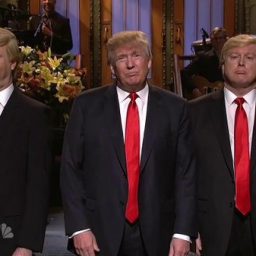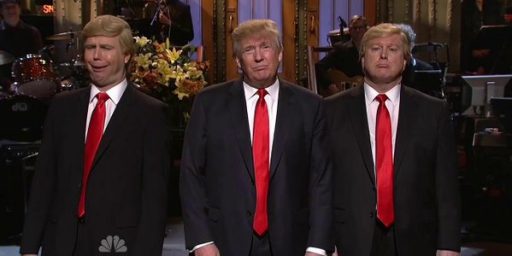Why 2020 Democrats Were Able to Consolidate the Moderates and 2016 Republicans Weren’t
The races are more alike—and yet more different—than we seem to remember.
Democrats Announce Qualifiers For First Debate
The participants for the two-night opening debate of the 2020 campaign season have been announced, and the candidates who were excluded aren’t happy.
Could Sanders Be the Democrats’ Trump?
In 2016, a crowded Republican field yielded an unlikely nominee. Could history repeat itself in 2020?
Democrats Will Split Early Debates Over Two Nights
Faced with a field that could be more crowded than the Republican field in 2016, Democrats have come up with a different solution to the rather obvious problem of debate scheduling.
Democrats Seem Likely To Make The Same Debate Mistakes Republicans Did
Faced with the prospect of a large field like the one Republicans had in 2016, Democrats are trying to figure out how to handle debates. So far, the ideas being put forward are as bad as what the GOP ended up doing.
Corey Stewart: The Virginia GOP’s White Supremacist Albatross
Corey Stewart rose to become the Republican Party’s Senate nominee in Virginia with blatant appeals to racial division. Now his party fears they’ll be the ones who end up paying the price.
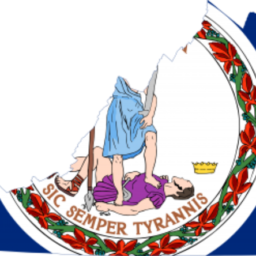
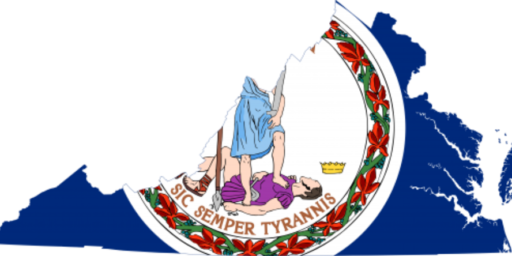
Virginia Republicans Nominate Pro-Trump, Pro-Confederate Corey Stewart For Senate
Virginia Republicans took a hard-right turn in yesterday’s primary. This is likely to benefit the Democrats.
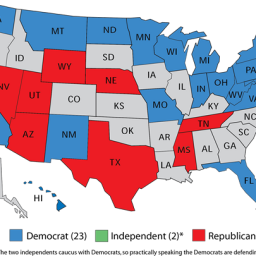

Former Presidential Candidates Emerging As Candidates For Senate In 2018
Several former candidates for President are emerging as potential candidates for Senate.

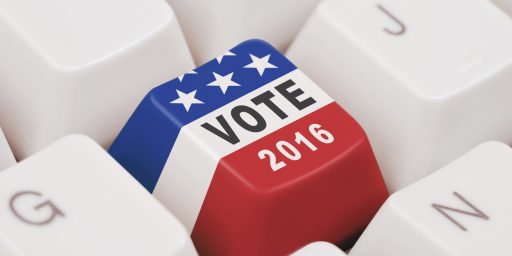
Post New Hampshire, Trump Clear Favorite with Four Plausible Challengers
The GOP field is now down to five.
A Look At The Final New Hampshire Polls, Plus Projections
Unless the polls are very wrong, it looks to be a good night for Bernie Sanders and Donald Trump. Beyond that, there’s a lot that’s still up in the air.
Final Iowa Polling Shows It All Depends On Turnout, Plus A Projection
The final polls of the Iowa Caucus show that the outcome of tonight’s caucuses depend almost entirely on turnout at this point. Plus, a projection of who will win and the order of finish.


Clinton, Sanders, Cruz And Carson Won Fourth Quarter 2015 Money Race
Fundraising in the final three months of 2015 largely reflected the state of the race itself, but some candidates are better positioned going forward than others.


Ted Cruz Becomes The Target At Trump-Less Debate, Trump Puts On The Donald Trump Show
Without Trump, the seventh Republican debate largely focused on Ted Cruz, who doesn’t seem to have done himself any favors. Donald Trump, meanwhile, will likely not pay any price at all for skipping the last pre-Iowa debate.


Trumpless Debate Helped Bush, But Likely Not Enough
Last night’s Republican debate had a different feel with the absence of a certain bloviating narcissist.
The Stage For The First Post-Iowa Republican Debate Will Be A Lot Smaller
The first debate after the Iowa Caucuses will have fewer participants than past debates, and there will be no undercard debate.
The Next Republican Debate Will Have A Lot Fewer Candidates On The Stage
Fox Business Network has announced its criteria for the next GOP Debate, and it looks like Rand Paul, Carly Fiorina, and John Kasich will be kept off the prime time stage.
Trump Surges Ahead Again In Post-Debate Polling
The first post-debate polls of the GOP race have more good news for Donald Trump.
Heading Into Next Debate, It’s Still Trump On Top With Cruz And Rubio Fighting For Second Place
A pair of new national polls shows a new trend in the GOP race heading into the final debate of 2015.


It’s Apparently Time To Discuss The Brokered Convention Fantasy Again
The quadrennial fantasy of a brokered convention, which American politics has not seen since 1952, is rearing its head again, and it’s no more likely now than it was when we talked about this four years ago.
Donald Trump Continues To Hold Commanding Lead In New Hampshire
Donald Trump continues to have a commanding lead in the Granite State, but it’s unclear whether he can translate poll support into votes when the primary rolls around.
Trump Has Massive Lead In New CNN Poll
Donald Trump just keeps leading in the polls, and Republicans keep arguing that it can’t last.


Another Day, Another Bizarre Donald Trump Speech
Donald Trump’s speech yesterday at a meeting of the Republican Jewish Coalition was as bizarre as anything else we’ve seen from him.
Donald Trump Remains At The Top Of The Republican Field
Seemingly disproving yet another round of predictions of his imminent demise, Donald Trump continues to dominate the race for the Republican nomination.

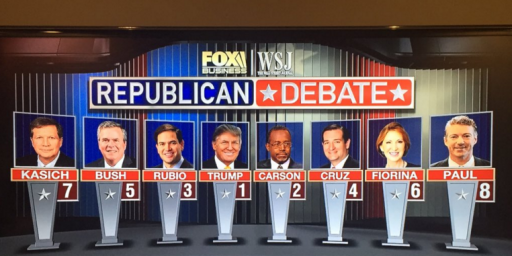
Polls Are Imperfect Criteria For Determining Debate Eligibility, But They’re The Best We Have
Candidates who have been excluded from tomorrow’s Fox Business Network are complaining, but their complaints ignore the fact that polling is the best objective criteria we have to determine debate eligibility.


Christie, Huckabee Relegated To Undercard In November 10th Republican Debate
The debate stages for both the undercard and main debate next Tuesday will look different from what we’ve become used to.
Trump And Carson Lead, Bush Sinking, Christie In Debate Trouble In Latest GOP Polls
Fluctuations continue, but the Republican Presidential field appears to be sorting itself out as we near the beginning of a new phase of the campaign.
Trump Still Leads The GOP Field, Anti-Trump Wave Still Not Manifesting Itself
A pair of new polls confirms that Republican hopes that Donald Trump would fade are failing to come true.
Trump And Carson Continue To Lead GOP Field, Rubio Rises
While Donald Trump and Ben Carson have slipped somewhat in the polls, they both continue to lead the GOP field while Marco Rubio shows signs of breaking out of the middle of the pack.
CNBC Debate Criteria Likely To Be Bad News For Several Republican Candidates
The criteria for next month’s third Republican Presidential debate have been announced, and they’re likely to end up being bad news for several Republican candidates.
Donald Trump Still Leads The GOP Race In First Post-Debate Polls
The first significant national polls taken in the wake of last week’s debate show that Donald Trump has slipped somewhat, but still remains the clear leader of the Republican race for President.


Republicans Clash In Second Debate That Seemed To Last Forever
The Republican candidates for President took to the stage last night for a debate that seemed to last forever and accomplished nothing.
Carly Fiorina’s Campaign Is Complaining About CNN’s Debate Rules
Carly Fiorina will most likely be excluded from CNN’s prime time debate in September, so of course her campaign is complaining about rules that were established months ago.
Trump Continues To Lead The GOP Field, But Is His Support Overstated?
Donald Trump’s support in the polls appears to become coming largely from people who don’t typically vote in primary elections.

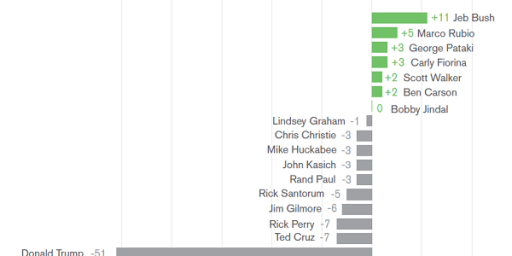
Hispanics Hate Trump, Love Hillary, Indifferent to Rest of Republican Field
Trump is at -51 net favorability and Clinton at +40. The rest of the field is at “Who?”


Don’t Expect The Republican Field To Shrink Very Much Before Iowa
For a variety of reasons, it’s unlikely that the Republican field will shrink significantly before the Iowa Caucuses.

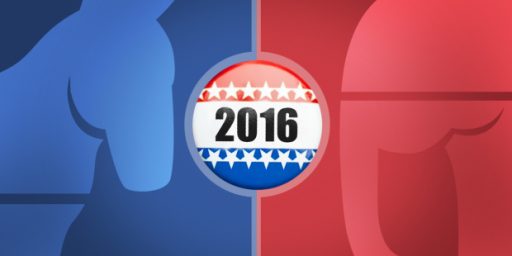
Trump Continues To Lead A Fluid GOP Field
Donald Trump is still in the lead of the Republican circus, but the rest of the field remains uncertain in the wake of the first debate.


Republicans Spar In Undercard Debate
The low-polling candidates met in an early debate. It was about what you’d expect.
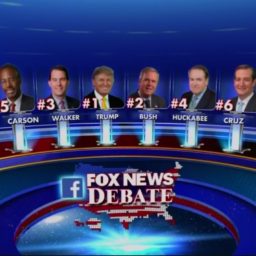
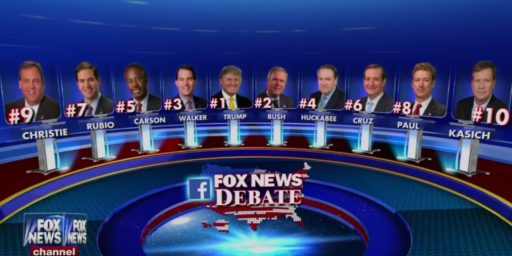
Fox News Sets Lineup For First Republican Debate
Donald Trump is center stage, John Kasich is in, and Rick Perry is relegated to the kid’s table.
Donald Trump Solidifies His Lead In Final Pre-Debate Polls
The last three polls to be released before Thursday’s debate show Donald Trump continuing to solidify his lead.
Donald Trump Leads In Latest Pre-Debate Poll, Perry Seems Likely To Miss The Debate
Donald Trump leads in the first of the final polls to be released before Thursday’s debate.
Newest Pre-Debate Poll Confirms Trump As Frontrunner, Kasich Now In Top Ten
The first of a series of polls in anticipation of next week’s debate shows Donald Trump still at the top, with a surprise coming out of Ohio.
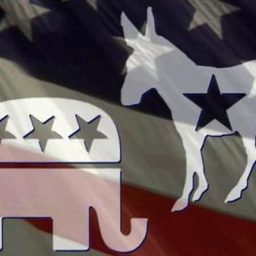

Jim Gilmore Running for President (for No Apparent Reason)
As expected, former Virginia Governor and Republican National Committee chairman Jim Gilmore has tossed his hat into the ring:
Republican Candidates Battle For Final Debate Slots
With just over a week to go, Republican candidates for President are fighting for the movement in the polls that could get them in to the August 6th debate.
